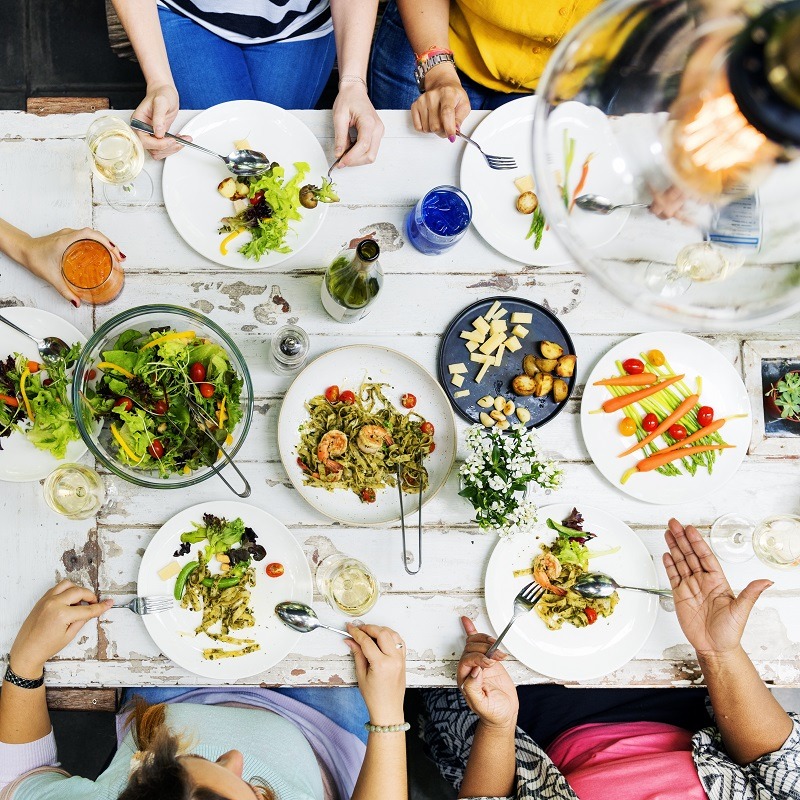
Written by Pennie McCoy, CSIRO Total Wellbeing Dietitian
Feeling unmotivated, leaning a little too far into cravings, starting to beat yourself up at the scales? According to the CSIRO, it might be in your head – but armed with a good serving of personalised strategies, it doesn’t need to sit on your hips!
Recent research from the CSIRO (a study of a whopping 245,000 people) has explored the different psychological characteristics in defining the different groups of dieters amongst Australians. Of the 325 possible Diet Type personality combinations identified in the study, the CSIRO revealed the six most common diet types, which represented over half the study sample.
- The Thinker (14.1 per cent) – goal-oriented, motivated and analytical, however sensitive to negative feedback that can lead to stress or anxiety which could ultimately derail their diet.
- The Battler (12.8 per cent) – likely to experience regular food temptation as well as being prone to stress and worry. ‘Battlers’ require some unique strategies to help them break the cycle and achieve long-term success in their diet journey. Nine in 10 Battlers are female.
- The Craver (7.3 per cent) – likely to experience strong food cravings that may lead to overeating in ‘tricky’ food-related settings. Cravers had the highest Body Mass Index of all types.
- The Pleaser (7.1 per cent) - likeable and friendly but can also be sensitive to social comparisons which can make them feel like they are not doing well. They are likely to have many people to call upon to support them along the way.
- The Foodie (5.9 per cent) – passionate about all things food including the experience of preparing and eating good quality meals. Foodies love variety and have the best diet quality of all Types. Men often identify as Foodies.
- The Socialiser (4.8 per cent) – a people-person who needs flexibility to make sure strict food restrictions don’t stifle social occasions or ‘kill the mood’ of an event.
Knowledge is power
Amid the current climate where there is a general lack of control, it’s understandable to feel a little overwhelmed, says CSIRO Total Wellbeing Dietitian Pennie McCoy, who urges Australians to use their Diet Type to their advantage.
“It’s easy to get bogged down in the detail and focus on what parts of your personality might be derailing your weight loss success.
“Instead, we encourage Australians to lean into the information and use it as an opportunity to identify both their strengths and where they can feel empowered and supported to make improvements.”

Top tips for success:
Strategies such as mindful thinking, breaking habits, and rewards systems are just some of the many tips and tricks at our disposal, says McCoy. The CSIRO has pulled together a Diet Type-specific list below:
The Thinker
- Remind yourself that “the journey is the destination”. Focus on positive actions such as trying new meals or tracking your food rather than outcomes like weight loss.
- Establish a self-reward system that motivates you. For example, a star chart for your best achievement each week.
The Battler
- Being healthy doesn’t mean you have to be perfect. Follow the 80/20 principle where you eat healthily most of the time and leave room for the occasional treat.
- Distract yourself from your cravings to break the habit. Go for a walk, take a few slow deep breaths or do a sudoku to keep your mind busy. The more often you do this, the less your mind will get stuck in using food to calm itself.
The Craver
- "Out of sight out of mind" is an important strategy for Cravers – avoid keeping treats you love at home or work. Or conceal them in opaque containers.
- If you eat when you’re emotional, don’t be tempted to eat less to “make up for it” the next day, just go back to your normal balanced diet.
The Pleaser
- As a Pleaser, you tend to underrate yourself. Avoid comparing yourself to others – this will leave you feeling deflated and unmotivated.
- You tend to put others needs before your own. It’s important to take care of yourself so you’re able to deal with stress. Prioritising sleep, drinking water and staying connected to friends and family are a few simple ways to practice self-care.
The Foodie
- Portion control is important for Foodies – you can still enjoy the delicious foods you love by learning to control your portion sizes.
- Explore new recipes to experiment with creative ways to add flavor and eat more vegetables to boost your nutrition and reduce how many kilojoules you’re eating.
The Socialiser
- Alcohol could be a trouble zone - learn strategies to drink sensibly, such as sipping water between drinks, trying new alcohol-free varieties, and refusing refills.
- Use your love of people to your advantage – ask a friend or family member to do a science-based program like the CSIRO Total Wellbeing Diet with you. You can share the journey and it will make socialising easier.
It’s empowering to know that the tools are out there to guide your weight loss journey, in a way that speaks specifically to you and how your mind ticks, says McCoy. For an even more personalised experience, she encourages Australians to explore a program such as the CSIRO Total Wellbeing Diet which is science and psychology-based for optimal weight loss results.
Find out which one you most identify with by taking the CSIRO Total Wellbeing Diet Types quiz.
Getting personal with weight loss Getting personal with weight loss Getting personal with weight loss




